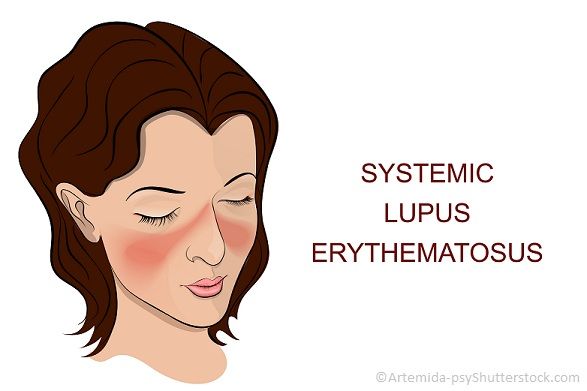Article
Fatigue in Patients with Lupus is Real
Author(s):
Fatigue in patients with systemic lupus erythematosus (SLE) has been linked to anti-NR2 antibodies, which responds to treatment with belimumab, a study shows.
Fatigue in patients with systemic lupus erythematosus (SLE) has been linked to anti-NR2 antibodies, which responds to treatment with belimumab, a study shows. (©ArtemidaPsy,Shutterstock.com)

Patients with systemic lupus erythematosus (SLE) who have higher levels of antibodies to the receptor in the brain associated with memory and learning also experience more severe levels of fatigue, new research shows.
The results, published in a recent issue of Annals of Rheumat ic Diseases, identifies a link between fatigue-one of the most challenging symptoms patients with systemic lupus erythematosus face-and the presence of anti-NR2, a brain-reacting antibody.
“The presence of anti-NR2 antibodies in patients with lupus with fatigue is a helpful diagnostic tool and may offer a major approach in the therapeutic management of this important disabling symptom in patients with lupus,” said Andreas Schwarting, M.D., a rheumatologist, immunologist, and medical director at the University Medical Center of the Johannesburg-Gutenberg University Mainz in Germany.
Elevated levels of anti-NR2 have been reported in 25 percent to 38 percent of patients with lupus, they said, so these findings could affect a substantial number of patients.
To determine the impact of these autoantibodies, researchers analyzed blood samples from 426 patients with lupus. They also assessed fatigue severity using a self-reporting questionnaire. The findings found that patients with higher anti-NR2 levels experienced the more significant impacts of fatigue, including motoric and cognitive fatigue. Researchers found no correlation between anti-NR2 levels and renal function, erythrocyte sedimentation rate, or C-reactive protein.
Study results also showed belimumab effectively relieved fatigue. Patients receiving belimumab for six months to 36 months saw a significant decline in their levels of anti-NR2 antibodies, as well as a clinically significant drop in their fatigue scores.
Overall, investigators said, the findings could directly impact patient care.
“The results of our study offer a sustained clinical advantage: to add an objective measurement of fatigue in lupus patients to a subjective questionnaire,” they said. “Anti-NMDAR antibodies should be identified routinely for patients with lupus suffering from fatigue.”
REFERENCE
Schwarting A, Mockel T, Lutgendorf F, et al. "Fatigue in SLE: diagnostic and pathogenic impact of anti-N-methyl-D-aspartate receptor (NMDAR) autoantibodies." Annals of Rheumatic Diseases (2019), doi: 10.1136/annrheumdis-2019-215098.

Real-World Study Confirms Similar Efficacy of Guselkumab and IL-17i for PsA



